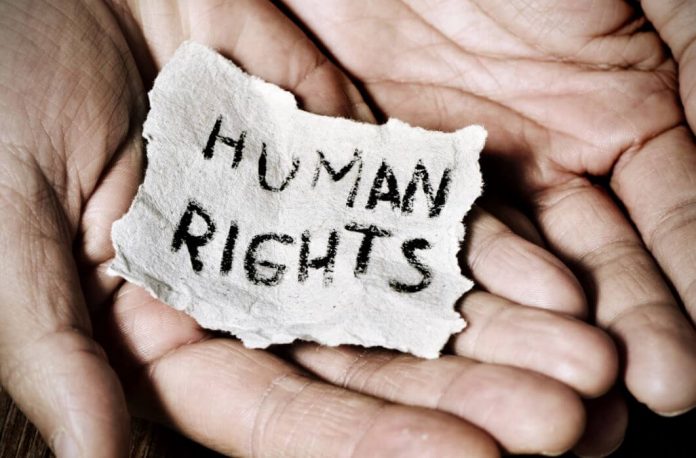This article has been written by Shapna G pursuing Diploma in Advanced Contract Drafting, Negotiation and Dispute Resolution and Oishika Banerji (Team Lawsikho).
This article has been published by Sneha Mahawar.
Table of Contents
Introduction
Human rights are vested with individuals by the virtue of their birth. These rights are automatically inherited and inalienable. Safeguarding of human rights is essential for a nation’s development. The Constitution of India guarantees the protection of basic human rights under Article 21 and other fundamental rights. The Universal Declaration of Human Rights clearly states that respect to humans and human dignity is the “foundation of freedom, peace and justice in the world”. The adherence of principles of human rights is a very important task, especially in the criminal justice system. Both the Supreme Court and high courts, being the guardian of fundamental rights, extend their protection toward the interest of human rights as well. Articles 32 and 226 of the Indian Constitution lays down a redressal mechanism for taking action against the State or private individuals whenever there is an infringement of fundamental rights which very much is inclusive of human rights. This article provides a glimpse of the scenario surrounding human rights with respect to India and the role of the Indian judiciary in safeguarding the same by abiding with the Indian Constitution.
All you need to know about human rights in the Indian context
The first and supreme expression of the fundamental values governing human rights is an international document adopted by the United Nations General Assembly that enshrines the rights and freedom of all human beings, the Universal Declaration of Human Rights. Articles 9-12 of the Universal Declaration of Human Rights and Article 10 of the International Covenant on Civil and Political Rights lays down a minimum standard for the criminal justice system that countries are advised to abide by. The Apex court of India has been a reflector of such advice in cases like Manekha Gandhi vs. Union of India (1978) and Kharak Singh vs. State of UP (1962). Further, in Sunil Batra vs. Delhi Administration (1978), the Supreme Court had observed that delaying under trial prisoners by keeping them behind bars stands in violation of the principles of justice, equity, fundamental freedom, dignity and fraternity, as have been established under Articles 19 and 20 of Indian Constitution.
Further, the principle governing statute for human rights in the Indian context, the Protection of Human Rights Act,1993, aims to provide equal opportunities thereby preventing unfair treatment to every individual, irrespective of any ground of discrimination. The Act was passed in conformity with the Paris Principles adopted at the first International Workshop on National Institutions for the Protection of Human Rights, held in Paris in the year 1991. These principles were endorsed by the General Assembly of the United Nations in 1993.
Section 2(1)(d) of the Protection of Human Rights Act, 1993 defines human rights as “the rights relating to life, liberty, equality and dignity of the individual, guaranteed by the Constitution or embodied in the International Covenants, enforceable by courts in India”. The significant goodness of the Act is the establishment of the National Human Rights Commission (NHRC) under Section 3. NHRC is an independent statutory body established on 12 October, 1993 acting as the watchdog of human rights protection in the country.
The mechanism of NHRC
National Human Rights Commission being a separate institution altogether, is considered a ‘watchdog of human rights’. The Commission is authorised to inquire into the violations of human rights. While NHRC falls under the Union government, the state human rights commission (SHRC) functions with the aid and advice of state authorities. They only act as a check on executory functionaries to prevent human rights violations. The commission does not have any jurisdiction to deal with human rights violations between individuals unless there is a complaint received by it. But most of such complaints having violations enter into the jurisdiction of courts.
The NHRC is composed of a Chairperson along with eight other members. Those eight members are:
- Four full-time members.
- Four deemed members.
Section 12 of the Protection of Human Rights Act,1993 lays down the functions of NHRC, which are provided hereunder:
- NHRC is responsible for involving itself in all kinds of matters that involve allegations concerning human rights violations, even if it is under any judicial process.
- NHRC is responsible for understanding the condition of living for inmates so as to avoid manhandling them. Visiting prisoners to observe living conditions and recommending about the same for its betterment, is one of the important functions of NHRC.
- NHRC can carry out a review of the Constitution’s provisions that intend to protect human rights and can suggest necessary restorative measures.
- NHRC is supposed to promote any kind of research that needs to be carried out in relation to the field of human rights. This will ipso facto raise awareness and literacy surrounding human rights among the masses.
- NHRC is also vested with the power of recommending rational steps to both central and state governments that can help in curbing violations of human rights in the Indian context.
Adversarial system of delivering justice and human rights : the relationship
In an adversarial criminal justice system, the accused is presumed to be innocent until he is proven guilty beyond a reasonable doubt. This system properly observes the rights of the defending and prosecuting persons by allowing both parties to present the evidence and cross-examine the witnesses. The significant disadvantage of the adversarial system is case management. The Indian criminal justice system suffers many systematic problems from adversarial systems which are resulting in numerous human rights violations, namely,
- A divergent range of human rights violations in the criminal justice system occur during police custody and it is widely acknowledged by governmental and non-governmental studies that police custody operates in a system facilitating the use of torture and ill-treatment, towards their inmates.
The ideal example of police brutality was seen in 2020 in Tamil Nadu where Bennix and Jayaraj were beaten up brutally by the police officials, thereby leaving them to succumb to the injury within a few days. They were charged with violation of lockdown rules that were imposed by the state. While this remains one of many examples of police brutality, what can be uniformly viewed in all these instances is the failure of executive authorities towards safeguarding the right to life and dignity guaranteed under Article 21 as a constitutional mandate. Further, NHRC data suggests that about 17,146 deaths have been reported in police and judicial custody till March 2020.
- The Apex court has criticised the non-dynamic nature of adversarial systems on many occasions. In Ram Chandra vs. State of Haryana (1981), the Supreme Court opined that, “there is an unfortunate tendency for a judge presiding over a trial to assume the role of referee or umpire and allow the trial to develop into a contest between the prosecution and defence with the inevitable distortion flowing from combative and competitive elements entering the trial procedure.”
Inquisitorial system of delivering justice and human rights : the relationship
In the inquisitorial justice system, the trial is conducted by the courts and the trial judge plays an active role by questioning and hearing the parties directly, determining what witness and the order of witnesses to call. The concerned police officer has to notify every offence he has taken notice of and submit in writing to the concerned prosecutor. If the prosecutor of any case feels that the case involves serious offences, he can move to the judge for his instruction to supervise the investigation of such cases. The role of lawyers is passive in the inquisitorial system.
Besides the adversarial system of India has certain deficiencies of non-dynamic nature and understaffing resulting in human rights violations and pendency of cases, the fair trial reasonability of judgment and fairness to the accused which are the basis of any criminal jurisprudence is very well protected in an adversarial system. Both adversarial and inquisitorial systems have their own disadvantages. Hence for better regulation of the criminal justice system and human rights, the significant features of the inquisitorial system can be adopted to strengthen the adversarial system which makes judges actively participate in directing investigation officers with the object of seeking justice for victims.
Resolving human rights disputes by means of plea bargaining
Judicial discipline requires promptness in the delivery of judgments and therefore delay in justice is an abrupt violation of human rights. With the advent of plea bargaining as a means of alternative dispute resolution mechanism, the process where the defendant negotiates with the prosecutor to reduce the liability of imprisonment, developed. The Justice Malimath Committee on reforms of the criminal justice system endorsed various recommendations on plea bargaining. The Law Commission of India in its 142nd report initiated the idea of concessional treatment of those who plead guilty on their own violation. Prolonged trials without any improvements can be dealt with by plea bargaining, which involves reparative methods for providing justice.
In Yashpal Chaudharani vs. State (2019), Delhi High Court provided the guidelines for compounding the offences under Section 482 of the Code of Criminal Procedure, 1973 (CrPC) through ADR methods:
- The Court while considering the reference of the parties to criminal cases to the mediation must before even ascertaining whether elements of settlement exist, examine by preliminary scrutiny, the permissibility in law for the criminal action to be brought to an end either because the offence involved is compoundable or because the high court would have no inhibition to quash it, bearing in mind the principles that govern the exercise of jurisdiction under Section 482 of CrPC.
- The mediator must undertake preliminary scrutiny of the facts of the criminal case and satisfy himself as to the possibility of assisting the parties to such a settlement as would be acceptable by the court, bearing in mind the law governing the compounding of the offences or exercise of the power of the high courts under Section 482.
- The system of vetting, at the conclusion of the mediation process, needs to be institutionalised so that before a settlement is formally executed by the parties, satisfaction is reached that the criminal charge is involved which is either compoundable or one respecting that there would be no inhibition felt by the high court in the exercise of Section 482 of CrPc.
Business human rights arbitration is an emerging mechanism as to the corporate obligation to respect human rights and to settle issues of a broad scope of possible human rights impacts on businesses, e.g., forced labour in a supply chain, environmental harm to the area surrounding a project or facility, or the data and privacy rights of consumers. They are heard in domestic courts, the court of public opinion, and before bodies designed to facilitate mediation and resolution. Justice Malimath Committee in its report said that, “over the years taking advantage of the several lacunae in the adversarial system, a large number of criminals are escaping convictions. This has seriously eroded the confidence of the public in the efficacy of the system. Therefore it is necessary to examine how to plug the escape routes and to block the possible new one.”
The ADR mechanism neither follows adversarial or inquisitorial systems of law. It follows the principle of natural justice as the core guide for functioning. The third person (neutral adjudicator) who is adjudicating must ensure the application of natural justice. The arbitral award can be challenged in court only on the grounds of violation of natural justice. The objectives of human rights are very well protected in such cases with the absence of bias and delay in trials.
Recommendations for the well-being of human rights through the justice delivery system
- The adversarial system is considered to be the best way to protect humanity, equity and fairness in trials. The irregular practices causing abuse to its fairness can be treated by making judges involved proactively in the investigation. The question that arises here is judicial activism. Judicial activism is necessary when it involves the question of Article 21. The Justice Malimath Committee report on criminal justice reform has both essential and unfavourable recommendations to the criminal justice system. The legislature should review the report and insert the vital recommendations which may have an inquisitorial touch for the protection and enhancement of human rights.
- More emphasis on plea bargaining to be given. The investigation process should be made before recommending cases for plea bargaining under the guidance of a judge.
- The National Human Rights Commission should be vested with a proper investigation team to deal with investigation whenever necessary, unlike requesting the Central Government for an appointment of the team.
- The Commission should be provided with jurisdiction to hear complaints of human rights violations between private parties. Complaints received for any violation in an investigation should be entertained and not get rejected merely because a case is registered and comes under judicial purview. National Human Rights Commission should be enriched to take cognizance irrespective of the sub judice of court or tribunal.
- Separate human rights cells should be set up to monitor the human rights regulations of the working class and households irrespective of gender. This human rights cell’s primary duty is to ensure protection for even unreported violations which a person faces in day-to-day life.
Conclusion
A country’s regulation of human rights can be analysed by its criminal justice system. The paper drives to the conclusion that almost every gap in the enforcement of human rights in the criminal justice system can be filled by a proper investigation system. A judge should participate actively in investigation practice whereby he avoids a passive role and there would be more reliability in equity justice resulting in humanity. Plea bargaining should be given importance to investigation processes to sort out every violation. The National and state human rights commissions, when provided with strong and separate investigation teams and no restriction to enter in any proceedings undertaken by any department for the review of any violation of human rights upon any complaints or in its suo moto would assist in enhancing its powers and protecting its objectives.
References
- https://www.iresearchnet.com/research-paper-examples/political-science-research-paper/human-rights-research-paper/
- http://www.ignited.in/I/a/89690
Students of Lawsikho courses regularly produce writing assignments and work on practical exercises as a part of their coursework and develop themselves in real-life practical skills.
LawSikho has created a telegram group for exchanging legal knowledge, referrals, and various opportunities. You can click on this link and join:
Follow us on Instagram and subscribe to our YouTube channel for more amazing legal content.
 Serato DJ Crack 2025Serato DJ PRO Crack
Serato DJ Crack 2025Serato DJ PRO Crack













 Allow notifications
Allow notifications


